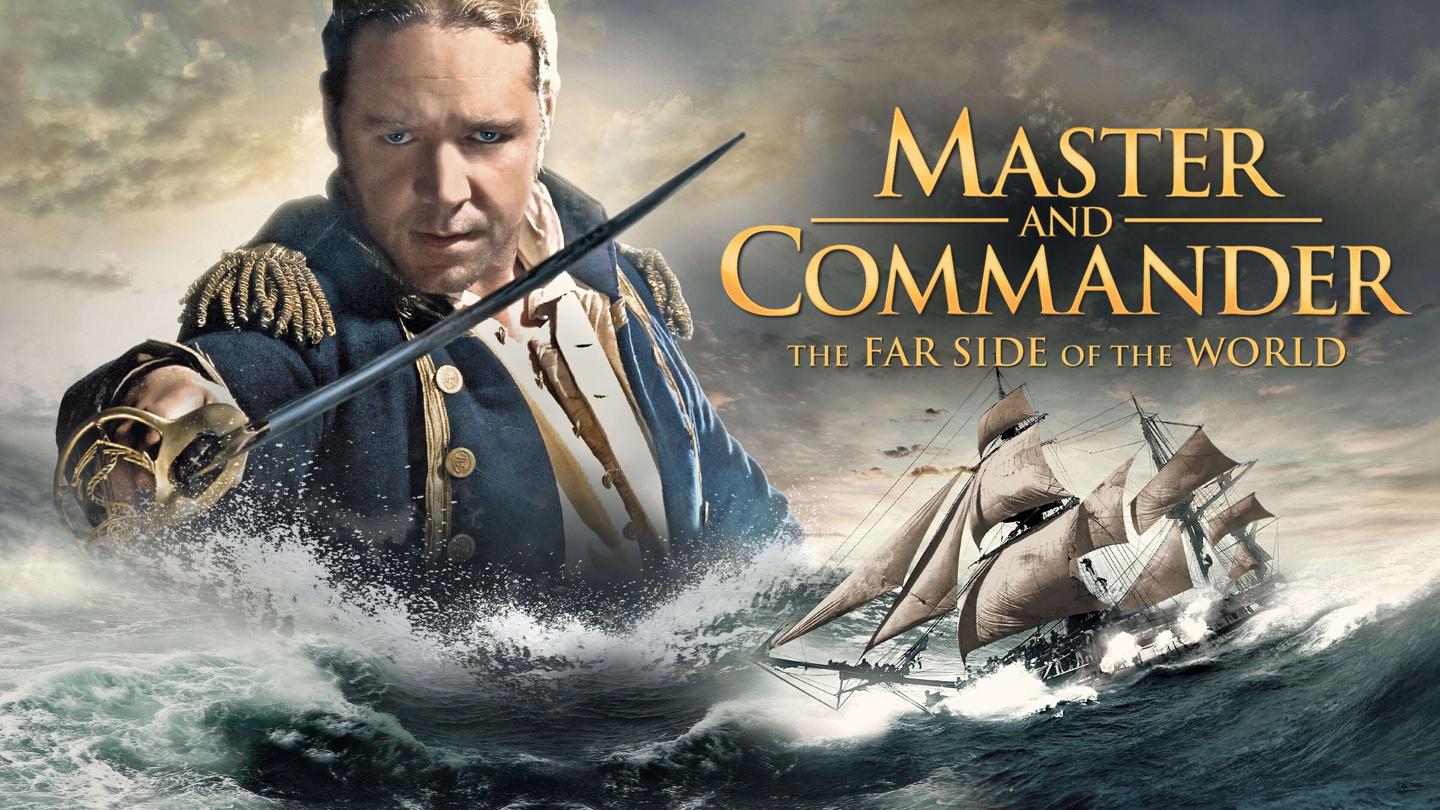Master and Commander: The Far Side of the World

Quick Info
Let’s talk about “Master and Commander: The Far Side of the World,” which orbits in that weird space between cult favorite and prestige epic. Released in 2003, it is, weirdly, still one of the high-water marks for historical naval warfare on film. Peter Weir directed, Russell Crowe stars, and it is the kind of movie that’s bold about being patient, clever, and gorgeously old school. The plot’s simple enough: British Captain Jack Aubrey chases down a French ship during the Napoleonic Wars, all the way around South America. Sounds dry, right? It isn’t at all.
The film nails atmosphere better than just about anything I’ve seen from the big historical epics of the 2000s. You can practically smell the tar and salt and stale sweat of life aboard the HMS Surprise. Everything feels tactile, from the percussive roar of cannon fire to the scratchy wool uniforms. I love the way the camera gets up close with bruised knuckles or battered wood, never letting you forget how grueling—or claustrophobic—-life at sea must have felt. Cinematographer Russell Boyd won an Oscar for this, and he deserved it.
Russell Crowe plays Capt. Aubrey with a gleam in his eye. He’s not Gladiator here; he’s more interesting, a mix of charismatic leader, half-fatherly, half-bro-ish to his crew, and occasionally kind of a jerk. Paul Bettany, playing the ship’s doctor and Aubrey’s best friend, gets to do the emo-intellectual thing. The dynamic between them is gold. There’s real warmth, banter, genuine tension, and you buy that these two could never quite exist on land. Oddly, their relationship is as central as any pirate-fighting or sea chase.
What surprises me every time is that the movie doesn’t serve up big, bombastic battles the whole way through. Weir focuses on people—detail, routine, boredom, small moments of joy, and random catastrophe. There are stretches where seemingly nothing happens except mending ropes or amputating a limb below deck. But it works. Somehow, the pacing is both meditative and, when it wants to be, jump-out-of-your-seat intense. The filmmakers trust you not to need a Marvel-style quip every eight seconds.
One of my few hang-ups is that it’s occasionally too slow. There are moments where you feel yourself drifting, especially during the second act—a lull in action, or too many shots of colonial birds and horizon lines. I get that it’s about patience and the odd rhythms of sea life, but it does feel padded in spots. Still, when tension breaks—and the cannonballs start flying—the contrast makes the action even more arresting.
Honestly, the music is another star. Crowe and Bettany’s characters bond by playing violin and cello duets, and the score is this wild mix of stately classical and menacing war cacophony. The music sells both the deep bond and the sheer madness of trying to hunt down another ship with no backup. The sound design might be the best from any film set at sea—creaking, banging, howling wind, you hear every nerve-wracking detail.
If there’s a knock against “Master and Commander,” it’s that it leaves women almost entirely off-screen, and the wider context of empire and war is almost an afterthought. This is a movie obsessed with the inner lives of men, for better and worse. It’s narrow in focus, and never really questions who gets to tell these kinds of stories. Half the time, the narrative feels almost hermetically sealed from the world outside the ship. This may not bother everyone, but it is a notable blind spot.
In the end, I wish “Master and Commander” had gotten the sequels it teased. Weir’s attention to detail, the lived-in feeling of this cramped wooden world, and the not-so-Hollywood approach to heroism give the movie an emotional heft that more recent historical blockbusters don’t. It leaves you wanting to read the entire Patrick O’Brian series, just to hang out with these oddball sailors a bit longer. It’s not perfect, but it sails closer to greatness than most other flicks in its genre.
The R8 Take
Still the best tall ship movie in decades—if you liked The Revenant’s immersion or Band of Brothers’ sense of camaraderie, this is your salty, windswept fix.

